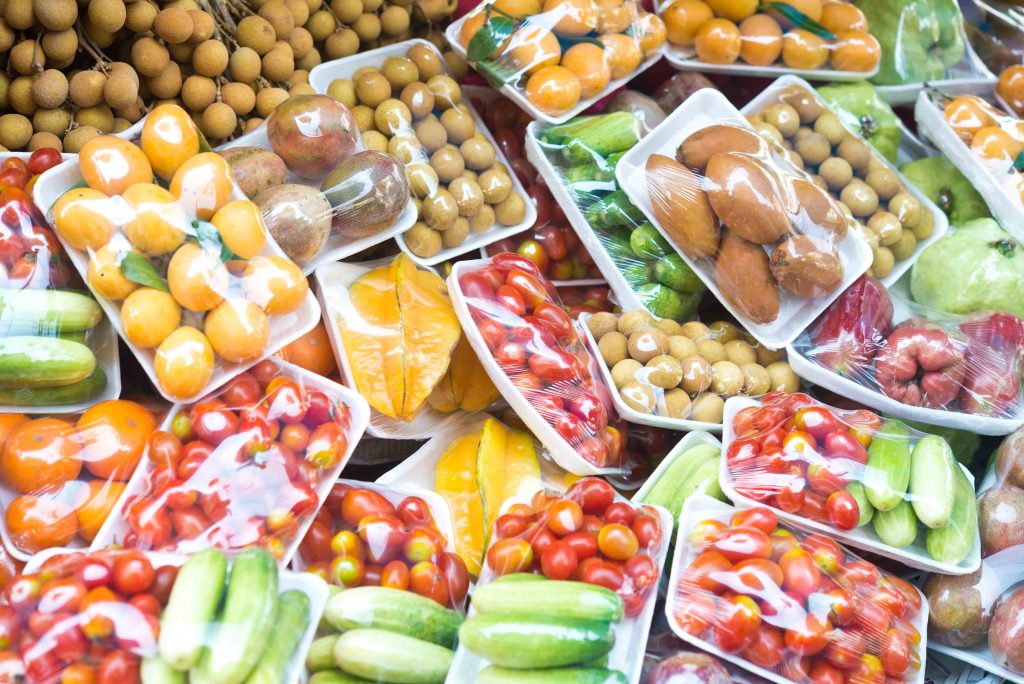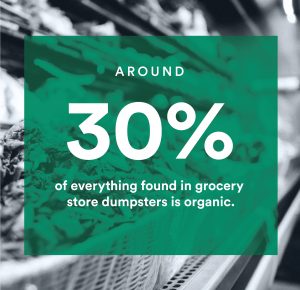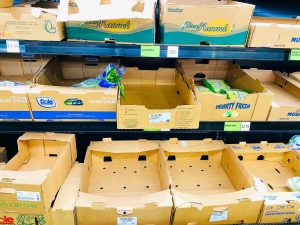If you’ve ever looked at your shopping cart and wondered at the volume and variety of packaging materials it contains, then you’re probably already aware that grocery store waste is a challenge. Whether through the disposal of food items that are no longer fit for sale, the plastic wrap containing the products, or dealing with the cardboard containers used to ship goods, the way our food is packaged, presented, and ultimately consumed is wasteful.
However, grocery stores are beginning to catch on, and as consumer awareness surrounding waste issues grows, both independent stores and large chains alike are looking at ways to reduce waste across the entire food distribution journey. Put simply, that means less packaging in store, less waste across distribution channels, and solutions for dealing with perishable foods.
How can grocery stores continue to reduce waste both in the store and, ultimately, for the consumer? Here we look at the main components of grocery store waste and a few of the measures being implemented to combat it.
Grocery store food waste
Food waste is a problem at all stages of the food distribution chain. Grocery store food waste statistics suggest that around 13% of food is lost at retail and distribution levels and that around 30% of what is found in grocery store dumpsters is organic material.
Today, overly conservative “sell-by” and “use-by” dates are not only forcing grocery stores to potentially waste food prematurely, but also confusing customers as to whether products are still good to eat.
Currently, there are no federal laws that dictate food dating conventions in the US, leading individual states and manufacturers themselves to label products how they see fit and creating plenty of confusion. Information disseminated by the FDA aims to guide consumers in reducing food waste, however, until more effective labeling is mandated, it may be difficult for grocery stores to avoid wasting food that may have a longer shelf life.
If keeping food on shelves and allowing customers to purchase “out of date” items is proving difficult in the short term, food donations can serve a viable outlet for grocery store “food waste”. Food that is past a “best before” or “sell by” date, can be donated before being thrown in the trash, and many laws have now been introduced to protect donors and provide tax incentives.
Commercial composting is another option for grocery store organic waste that can’t be donated. It is one of the most environmentally beneficial ways to handle organic waste today while also keeping food waste out of landfill.
Grocery store cardboard + paper waste
Many of the products delivered to supermarkets on pallets are packaged within cardboard and paper, and while all of this can be recycled, storing and managing it in such large volumes can be problematic for grocery stores—particularly smaller operations. Cardboard balers offer one solution that allows significant space-saving by compressing cardboard and paper into manageable bales. Additionally, this facilitates the collection and may help to reduce costs by volume.
Another solution is to ship goods in containers such as sacks or plastic drums, which can be returned and reused, significantly reducing the amount of cardboard packaging used.
Grocery store plastic waste
Supermarkets and grocery stores often use plastic wrap to package produce unnecessarily. This creates grocery store waste both for the consumer at home, and in-store if products are thrown out.
Finding new ways to package goods is a step that needs to be taken by supermarkets. Grocery stores internationally are coming up with solutions like using banana leaves to wrap produce. Consumers can help put pressure on these businesses to work with their vendors to stop unnecessarily wrapping products in plastic and come up with alternative solutions, or not package them at all.
Only by changing the way we consume and distribute goods can we begin to reduce this wasteful cycle. Until then, ensuring plastics are properly sorted, collected, and diverted from landfill wherever possible is the best solution.
For more information on how your grocery store can reduce waste, contact RTS today for a free waste assessment. Alternatively, for the latest news on the waste management industry, sustainability issues, and ecological concerns, keep up with the RTS blog here.




